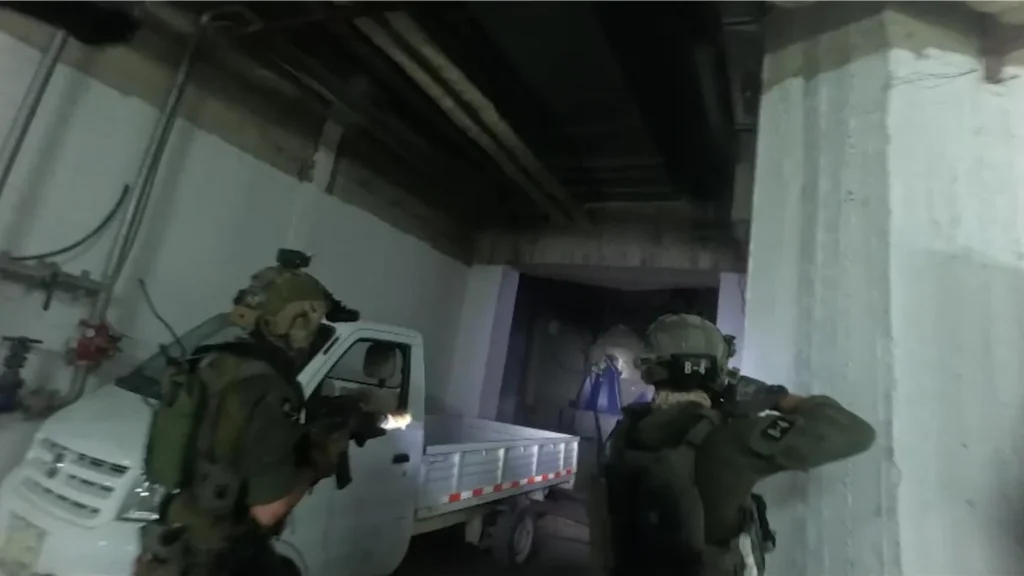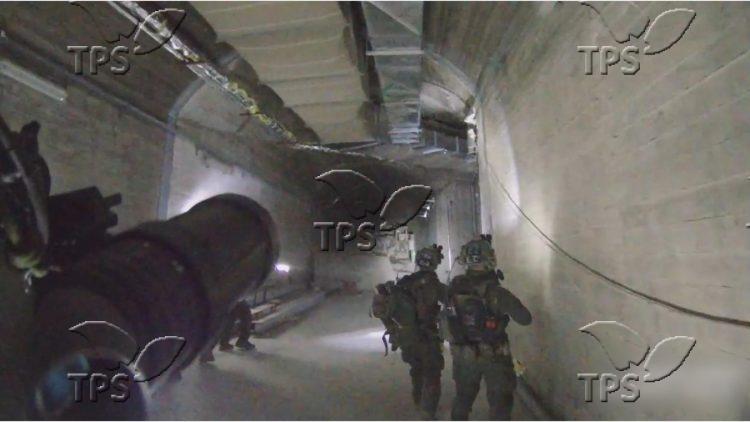The Israeli military announced on Thursday that its special forces conducted a raid in September on an underground missile production facility in Syria. The plant, located near Masyaf on Syria’s Mediterranean coast, was allegedly designed to produce hundreds of precision-guided missiles for Hezbollah, an Iranian-backed militant group, for potential attacks on Israel.

Lieutenant Colonel Nadav Shoshani described the site as “the flagship of Iranian manufacturing efforts in our region” during a press briefing.
“This facility was capable of producing hundreds of strategic missiles annually from start to finish, enabling Hezbollah to enhance its aerial attack capabilities against Israel,” Shoshani stated.
The facility, built into a mountainside, had been under Israeli surveillance since construction began in 2017. By the time of the September 8 raid, it was reportedly on the verge of becoming operational, with the capacity to produce missiles with ranges of up to 300 kilometers (190 miles).
“This was an immediate and significant threat,” Shoshani said, emphasizing the urgency of the operation.

Official Confirmation
Although details of the operation had circulated in Israeli media, this marks the first official acknowledgment by the Israeli military. Prime Minister Benjamin Netanyahu hailed the raid as a critical defensive measure.
“This was one of the most important preventive operations we’ve undertaken against the Iranian axis’ efforts to arm itself for attacks against Israel,” Netanyahu said in a statement.
Shoshani described the nighttime raid as one of the most complex missions carried out by the Israel Defense Forces (IDF) in recent years. It involved dozens of aircraft, approximately 100 helicopter-borne troops, and airstrikes to support the mission.
“At the conclusion of the operation, our troops dismantled the facility, including all manufacturing machines and equipment,” Shoshani added.

The military released footage showing troops boarding and dismounting from helicopters, navigating concrete-lined tunnels, and examining documents at the industrial site. Additional footage displayed senior commanders monitoring the operation from a control center.
Syrian state media reported that Israeli airstrikes in the region on September 8 resulted in at least 16 fatalities.
Israeli officials have long accused Syria’s former government under Bashar al-Assad of aiding Hezbollah by facilitating the transfer of Iranian arms. Israel has repeatedly stated its commitment to preventing the flow of weapons into Lebanon and disrupting Iran-backed military infrastructure in the region.
With Assad’s government losing control of key territories toward the end of last year, Israel increased its strikes on Syrian military installations and weapons manufacturing sites to prevent their potential acquisition by hostile forces.



